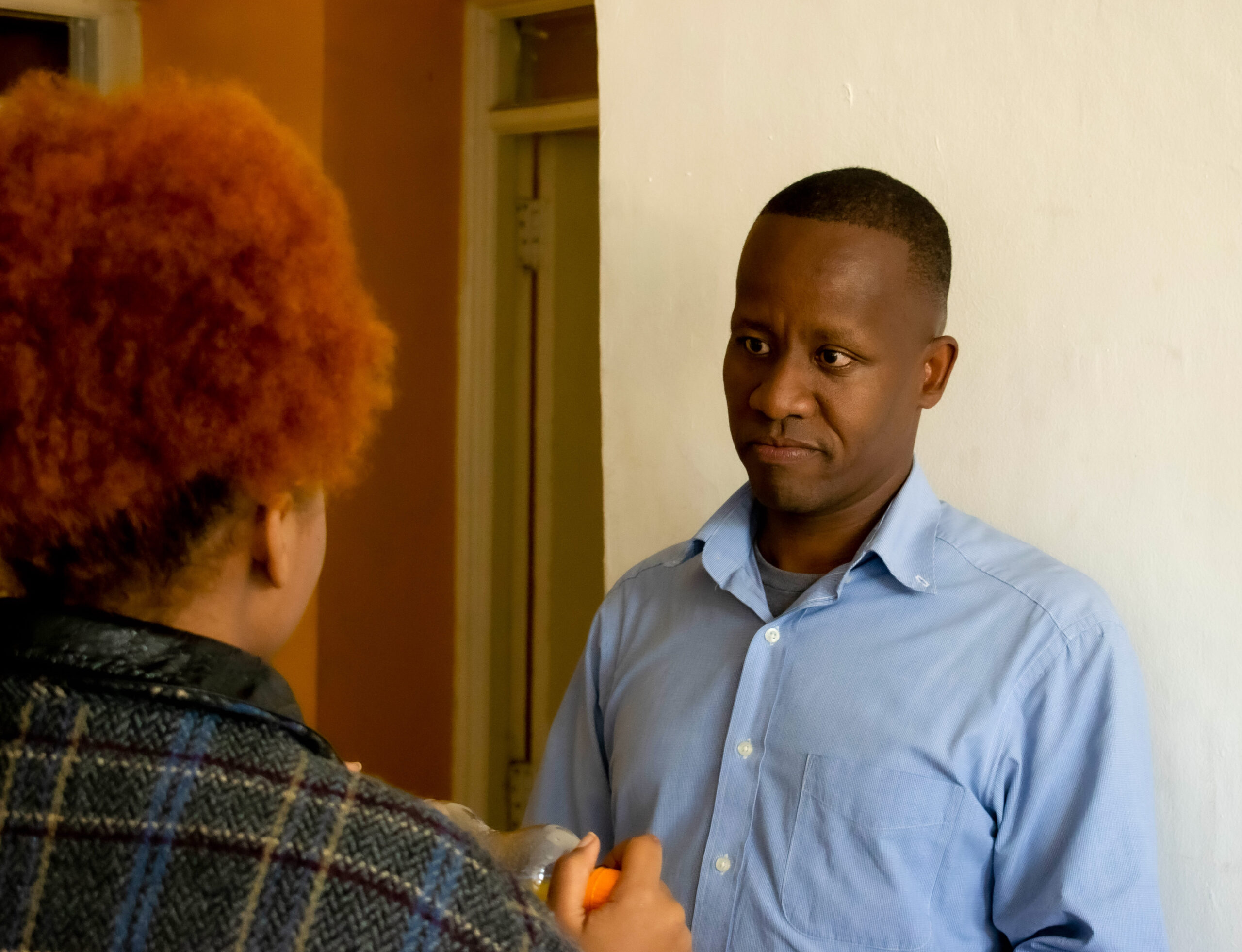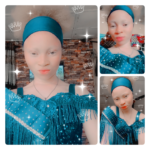By Bernard Muhia
When Thomas Bundi realised that Africa could be better represented on the big screen, it took him a while to work out how to help. Then came an opportunity – and he jumped at it.
“We represent ourselves the way we want to be seen, and film is a very good cultural diplomacy tool,” Bundi, a film producer and lecturer who works online, in partnership with Jenge Kulture, a Kenyan NGO.
In 2017, Bundi was working as a lecturer at the Africa Digital Media Institute and the African Film and Television Talent Training Institute when he noticed that a number of submissions for the local film festivals where he volunteered were substandard.
“I was a facilitator at the 2017 Zanzibar Film Festival. My role was to make sure that people understand what films are going on and hold discussions after the films were made. It was there that I started to notice a gap – because of the bad sound and poor image quality of films – and decided to add value in the production process: the creation of the idea, the development of the idea and its execution,” Bundi said.
When COVID-19 hit, Bundi quit lecturing after a country-wide lockdown affected his in-person classes. He had engaged in some film production activities while teaching, so he threw himself into that. But the desire to make a difference persisted. While content creation was blowing up across the internet, he realised he could help by focusing on formalising content creation and using the smartphone as his classroom.
“During lockdown, I started researching and writing newspaper Op-Eds on the effect of the pandemic on cultural and creative industries with a specific focus on Kenya. This got me thinking on my particular area of focus – the screen production sub-sector in East Africa,” Bundi said.
The result was SimuSlate FilmLab, an online film production school.
Bundi partnered with Jenge Kulture, an NGO located in Embakasi, Nairobi, that uses art for social change. French cultural centre Alliance Française provided the space for their first cohort, in 2022. The inaugural cohort produced eight films and five of those were entered in film festivals around the world.
“The aim of the lab is to offer targeted support in treatment writing, directing, shooting of rough cuts, editing, and packaging for international film festival distribution. Participants are required to apply with a documentary idea that they can work on and shoot exclusively using a smartphone or mobile device and films should be no longer than 10 minutes,” Bundi explained.
The media entrepreneur’s virtual lessons are offered free of charge to selected filmmakers and he relies on donations and partners to keep the fellowship running.
“The fellowship classes are once a week and are conducted online through two apps, Google Classroom for assignments, handouts and feedback and Google Meet for video conferencing for two hours every week for the teaching session. We use a project-based online learning method over a five-week period. Our lessons are divided into 2-hour blocks every week; one hour of technical instruction and one hour for a guest mentor,” Bundi continued.
Even though the main teaching process is online, Jenge Kulture offers a co-working space and is available for physical meetings. Jenge also acts as a final editing and finishing space for the films after fellows complete post-production.
Denzel Owoo, a SimuSlate alumnus from Ghana, created a film on mental health, featuring a bipolar filmmaker.
“Following some very basic principles of quality and structure, you can make a decent film. It’s for all young filmmakers who need some experts to look at their work and give them pointers or tips,” Owoo said.
Another filmmaker, Artsy Solomon from Kenya, premiered his ‘Forever Home’ film at the 2022 SmartPhilm Festival in Addis Ababa, Ethiopia, where it scooped the Best Emerging Talent and Best Cinematography Awards. It was also an official selection at the Another Way Film Festival in Madrid. The film also won the Best Cinematography Award at Kitale Film Week 2022 in Kenya, was a Gala Finalist at the 2022 SmartFone Flick Fest in Australia and won Official Selection at the 2022 Under Our Skin Human Rights Film Festival in Kenya.
“The advantage of the lab is that it gives people certificates, validation and confidence as well as provides a safe space to experiment. The films produced help participants in getting Internet Movie Database (IMdb) credits which they add to their portfolio. The cohorts are also a sourcing pool for future collaborations,” Bundi said.
Bundi advocates creative ventures that are market-oriented.
“If it’s not about the business, then it’s just a hobby. We are a huge enough market as a free Intra-African Trade Area.”
His view of Africa as a single media market is aligned with that of Kanayo Awani, Executive Vice President at Intra-African Trade Bank at Afreximbank. In November 2023, Awwani disclosed the bank was working on the establishment of a US$1 billion African Film Fund, to be launched in 2024 to support the continent’s film industry.
“The fund will oversee film financing and co-finance with large studios, finance African filmmakers, finance producers and directors of film projects across the continent,” Awani said in a press release available on their website.
With a continental audience to support African film, the opportunity for high-quality films to find international audience becomes that much greater. Which in turn is a great opportunity to shift the narrative on Africa, according to Bundi.
“The global audience is hungry for African stories because of the need to diversify the people who are seen on TV. This helps with cultural preservation and diversity; however, we need to actively decolonize the narrative,” Bundi said.
“Afrocentric storytelling helps in changing the narrative about Africa by providing alternative perspectives that challenge stereotypes and promote a more nuanced understanding of the continent. Young Africans take control of their own narratives and represent their cultures in a way that is empowering. It also bridges cultural gaps and promotes a sense of interconnectedness,” said Harsita Waters, Head of Cultural Affairs at The Alliance Française de Nairobi.
Alliance Française has supported Kenya filmmaking for over a decade and claims to be the first institution in Kenya to launch a Smartphone Film Competition, #filmbyphoneke.
The annual competition gives young people an opportunity to explore filmmaking with small budgets. It also offers the opportunity to work in teams and stretch the boundaries of creative thinking and innovation to tell African stories.
Mucia Njeri, a Kenyan, is in the current cohort of SimuSlate fellows and is working on a documentary about plastic recycling.
“This is my first time making documentaries. I’ve made fiction in the past, so documentary is a new field and they (SimuSlate) have taken me through it from scratch to where I am. They’ve been really helpful,” Njeri said.
“At the core of what we do is the message that anyone can do it; that the lack of expensive gear and big production crews and budgets should never be a hindrance to storytelling. For African youth, this is both inspirational and also a challenge – to start where they are and with what they have in telling, especially the stories that have the power to drive social change,” Denis Onyodi, a filmmaker from Uganda and a mentor at SimuSlate Film Lab, said.
Bundi is currently working on an academic paper for the Mobile Device Studies Congress to be presented in December 2023 on decolonizing media research in the Global South hosted by the University of Ningbo in China and Swinburne University in Australia.
bird story agency
Thomas Bundi, a film producer and lecturer, recognized the potential for better representation of Africa in films and sought to address the issue through his work. Initially working at local film festivals, Bundi noted a quality gap and decided to improve the production process. The COVID-19 lockdown prompted him to focus on formalizing content creation using smartphones, leading to the establishment of SimuSlate FilmLab, an online film production school. Partnering with Jenge Kulture and Alliance Française, SimuSlate trains filmmakers to produce documentaries with smartphones.
SimuSlate's inaugural cohort produced eight films, many of which were showcased at international festivals. The program emphasizes treatment writing, directing, editing, and packaging for festivals, with classes conducted online and support from guest mentors. Bundi, supported by donations and partnerships, offers these lessons free of charge.
The initiative has helped filmmakers like Denzel Owoo and Artsy Solomon achieve recognition and awards. Bundi stresses the importance of market-oriented creative ventures and supports efforts like the proposed US$1 billion African Film Fund to bolster the continent’s film industry. By promoting Afrocentric storytelling and providing resources, SimuSlate aims to empower young African filmmakers to control their narratives and challenge stereotypes.
Bundi's work is aligned with larger efforts to diversify global media representation and decolonize narratives about Africa. His continued advocacy and educational efforts contribute significantly to the growth of African cinema.






